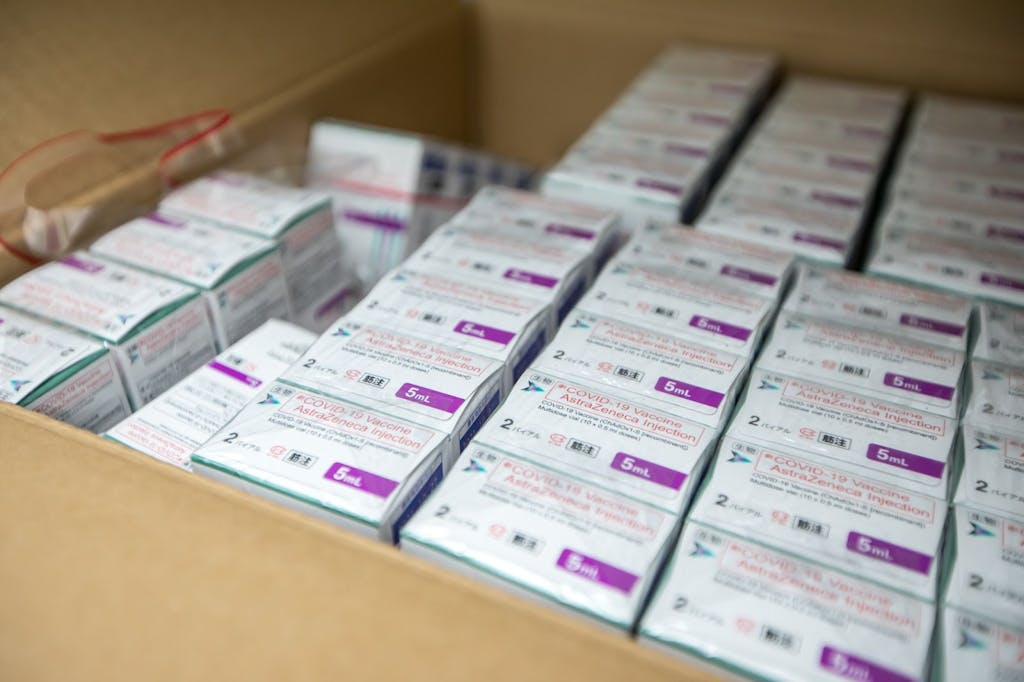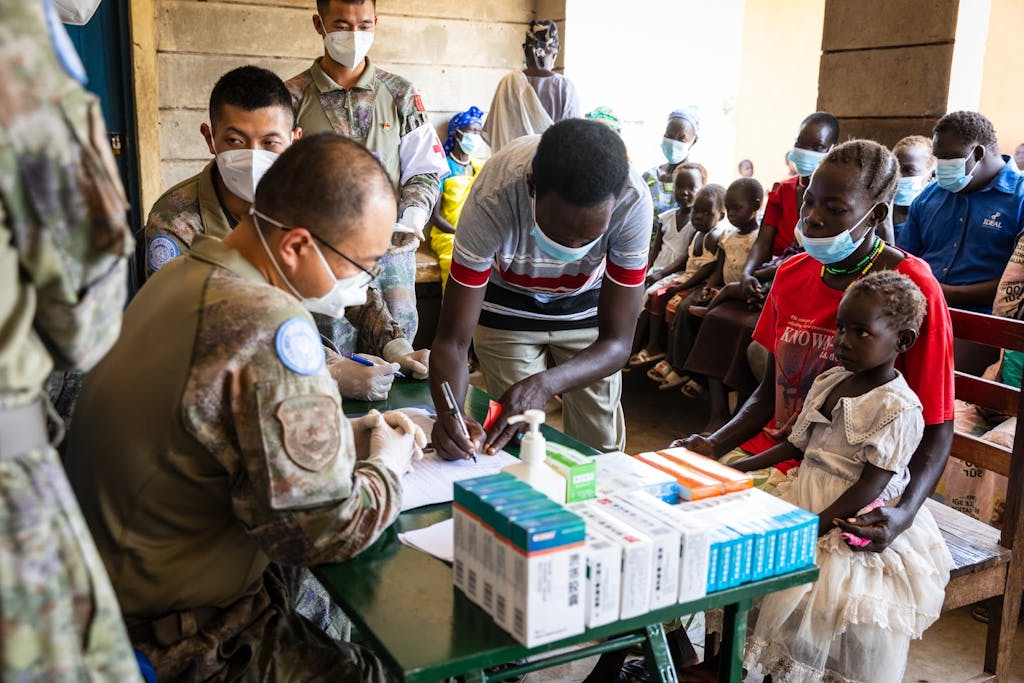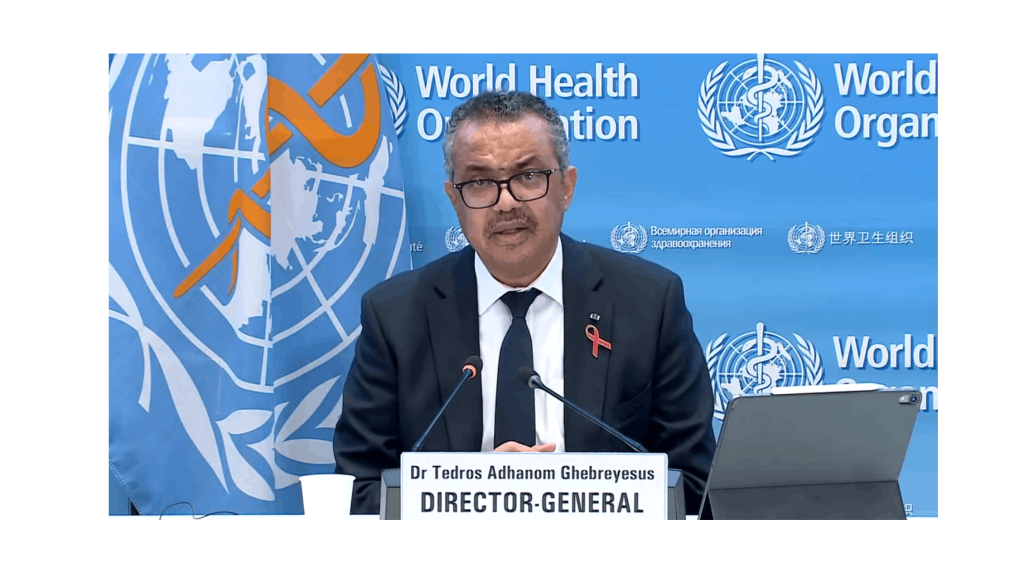
Dr. Tedros Adhanom Ghebreyesus, Director-regular of the World well being group, seen at a COVID-19 briefing relating to the newly recognized Omicron variant. photograph: WHO.
final week, the World well being group introduced the invention of a mannequin new COVID-19 variant of concern: B.1.1.529, now recognized by its Greek identify Omicron. whereas a lot stays to be unknown about Omicron, it’s important to maintain in thoughts that variants will proceed to emerge with out a concerted, collective, and equitable response to the pandemic.
circumstances of the Omicron variant have been rising throughout South Africa, the place it was first sequenced and introduced by authorities in early November. Since then, circumstances have been confirmed in the united kingdom, Germany, Israel, and a quantity of completely different completely different international places throughout the globe.
as a consequence of the mannequin new variant incorporates an complete lot of mutations, researchers are nonetheless studying about Omicron’s transmissibility, severity, and response to current remedy and detection devices.
whereas the world waits on their findings, we’re already seeing why the Omicron variant is a harbinger of issues to get back till we defeat this pandemic for good.
1. Omicron underscores the significance of early warning purposes.
The Omicron variant is a reminder of the significance of surveillance, genomic sequencing, and early reporting mechanisms. as a consequence of of the Governments of South Africa and Botswana, which first detected the variant and alerted worldwide authorities, international places throughout the globe have been in a place to share public well being knowledge to assist curb infections. It’s why we should pay money for regional and native surveillance purposes, particularly in weak international places with poor public well being infrastructure. 23 international places from 5 of six WHO areas have reported circumstances of Omicron so far, with extra anticipated every day.
ensuing from this early reporting and sharing of gene sequences, vaccine makers have been in a place to quickly start adapting current mRNA vaccines to shield in direction of Omicron.

a particular person in Indonesia is swabbed for a COVID-19 take a look at. photograph: Mufid Majnun / Unsplash
international places want to be rewarded and lauded for reporting circumstances and knowledge to the World well being group (WHO), not punished by counterproductive journey bans or deceptive nicknames for the virus, akin to a consequence of the “South Africa variant,” which wrongly implies that Omicron originated there when current research suggest it was in Europe and elsewhere earlier than the South African authorities reported it.
Blunt journey bans are ineffective and unfair, they usually current massive financial and social penalties to society as an complete. earlier than the invention of Omicron, the World financial institution anticipated solely forty% of creating international places to regain pre-pandemic per capita earnings, with virtually one hundred million people falling into extreme poverty. as a alternative, to in the discount of Omicron’s risk and transmission, the world ought to look to layered and context-dependent public well being measures akin to masks carrying, bodily distancing, air air flow, and completely different measures confirmed to work in direction of earlier strains of the virus.
2. Vaccine equity is our biggest exit method.
From the start, scientists have warned that the extra COVID-19 circulates, the extra alternatives the virus has to fluctuate, and the extra mutations shall be created. whereas vaccines are frequently not a silver bullet to finish the COVID-19 pandemic, they’re primarily the strongest devices at our disposal for curbing the virus’s unfold.
but, as of right this second, greater than eighty% of the world’s COVID-19 vaccines have gone to G20 international places. in the meantime, low-earnings international places — most of them in Africa — have acquired simply zero.6% of these vaccines. South Africa and Botswana, the place Omicron has been detected most typically, have absolutely vaccinated decrease than 1 / 4 of their populations.
regardless of unequivocal alignment and clear steering amongst world public well being consultants, collectively with WHO’s management, the world is failing to assist such confirmed strategies and partnerships as a consequence of the entry to COVID-19 devices (ACT) Accelerator, the Africa Vaccine Acquisition process workforce (AVATT), and COVAX, a risk-sharing effort by Gavi, the Coalition for Epidemic Preparedness improvements (CEPI), and WHO to ship important assist to international places in want.

Some 670,000 doses of the AstraZeneca vaccine have been donated to Cambodia by the federal authorities of Japan under the auspices of COVAX. photograph: Nick Sells / UNICEF
This yr’s $15.9 billion funding hole for COVAX, for event, means simply 17% of dedicated COVID-19 vaccine doses have been delivered. If extra research of the Omicron variant yields perception into decreased efficacy of current vaccines, therapies, or checks, there shall be method extra stress on already-strained evaluation and enchancment performance, manufacturing performance, and current chains.
To stem the emergence of latest variants like Omicron, it is important that we proceed to in the discount of the unfold of COVID-19 by means of equitable entry to vaccines, diagnostics, and coverings. but up to now, ensures have fallen brief. The G7 nations — Canada, France, Germany, Italy, Japan, the united kingdom, and america — have collectively pledged 2 billion vaccines for decrease-earnings nations over the subsequent two years however have but to current clear plans for supply. in the meantime, solely 15% of the anticipated or secured quantity of doses in low-earnings international places are actually being delivered, in protecting with the impartial Panel for Pandemic Preparedness and Response (IPPPR). “The enormous immunization gulf between the richest and poorest international places of the world jeopardizes the well being of everyone on the planet,” the impartial Panel declared in its latest report.
In October, leaders met on the World commerce group (WTO) to negotiate briefly waiving mental property rights on COVID-19 vaccines and therapies. The commerce-associated facets of mental Property Rights (journeys) waiver was anticipated to be negotiated on the twelfth Ministerial convention Nov. 30-Dec. three, nonetheless the convention was postponed. greater than one hundred international places backing the waiver, collectively with america, say it would assist save lives by permitting creating economies to current COVID-19 vaccines. however Germany and Switzerland, house to amongst the numerous world’s biggest pharmaceutical firms, are blocking the proposal. regardless of the postponement of the convention, international places have agreed to proceed discussions.
three. The world is underinvesting in strategies to finish the pandemic.
As Europe faces its fourth surge, with circumstances and deaths doubling beforehand two months, it’s clear that the COVID-19 pandemic is a lot from over. This pandemic will not be defeated anyplace till it’s defeated in each place.

Peacekeepers from China serving with the United Nations Mission in South Sudan (UNMISS) patrol Kuda, a village ninety km west of Juba. UNMISS peacekeepers additionally contacted the native inhabitants and supplied some well being care on the native clinic in Kuda. photograph: Gregorio Cunha / UN photograph
And vaccines alone can’t get us there. WHO has been on the forefront of delivering completely different important devices, akin to masks, private defending devices, and respirators, to low- and center-earnings international places. Ongoing gaps in funding, nonetheless, are threatening entry. As we entered the final month of 2021, WHO’s Strategic Preparedness and Response Plan confronted a substantial funding shortfall of 38%. This hole will endanger WHO’s capability to maintain core COVID-19 features at each nationwide and world ranges by addressing pressing priorities akin to vaccination, surveillance, and outbreak responses for international places experiencing case surges.
It’s each inefficient and unwise to sort out an evolving risk like COVID-19 with out marshaling the complete assets of the world — equitably — to defeat it.


